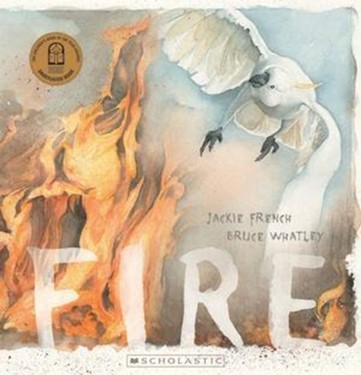Summer 2019/20 was a summer like no other. A large part of the ACT, NSW and indeed all along the east coast of Australia was severely affected by bushfires.
At Wonderschool we want to engage with our children as much as we can about the world around us, and to support them during challenging times. Even when sometimes the topic touches on natural disasters such as the Australian summer bushfires.
Recently, and from the children’s’ interest and engagement, we have been focusing on the story “Fire” by Jackie French and Bruce Whatley.
“One small spark brought fire awake
Winding like a small black snake
Fire flickered, fire crept
Flames snickered, bushfires leapt”
Throughout the book, the poetic story tells of the devastation of bushfire and a beautiful and is a timely expression of the strength of the Australian spirit.
During the reading of this story, the children often reflect on and share their personal recollections from our most recent bushfire that sadly affected our local community. We discuss how our families prepared, the ways in which our community came together and how the wonderful fire services worked tirelessly to keep us safe.
So, why focus on these events with the children?
“A defining condition of being human is that we have to understand the meaning of our experience.” – Jack Mezirow
At Wonderschool, we believe it’s important for children to practice linking and constructing meaning from their experiences, and in doing so this requires reflection.
“Reflecting on experiences encourages insight and complex learning. We foster our own growth when we control our learning so some reflection is best done alone. Reflection is also enhanced, however when we ponder our learning with others. Reflection involves linking a current experience to previous learnings (a process called scaffolding). Reflection also involves drawing forth cognitive and emotional information from several sources: visual, auditory, kinesthetic, and tactile. To reflect, we must act upon and process the information, synthesizing and evaluating data. In the end, reflecting also means applying what we’ve learned to contexts beyond the original situations in which we learned something.” – Learning and Leading with Habits of Mind 2008
